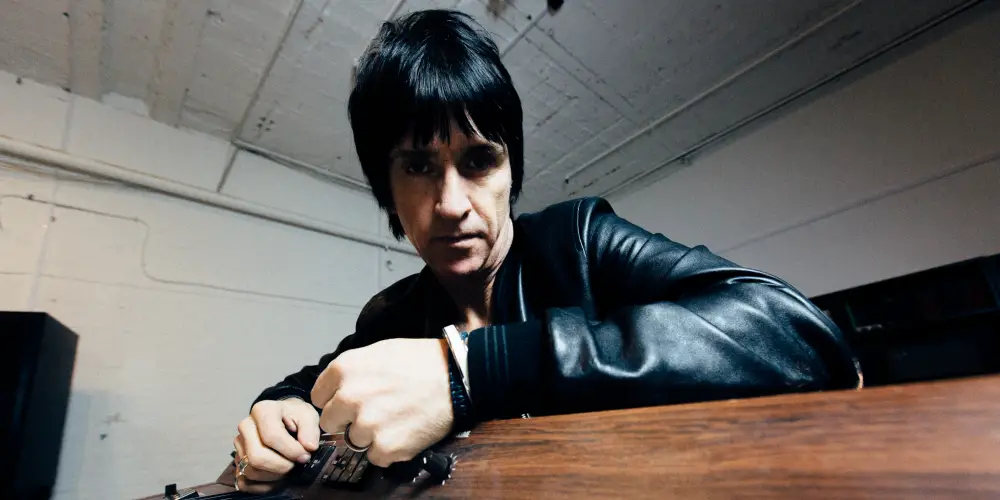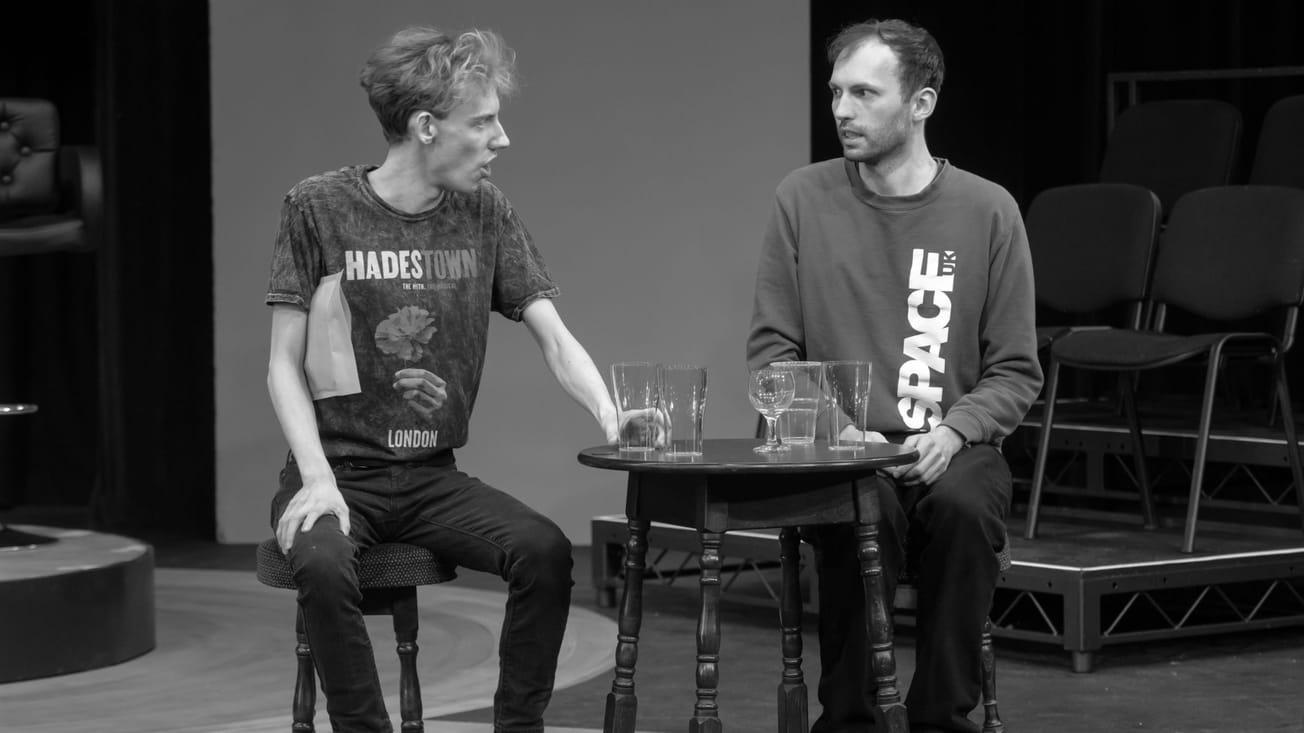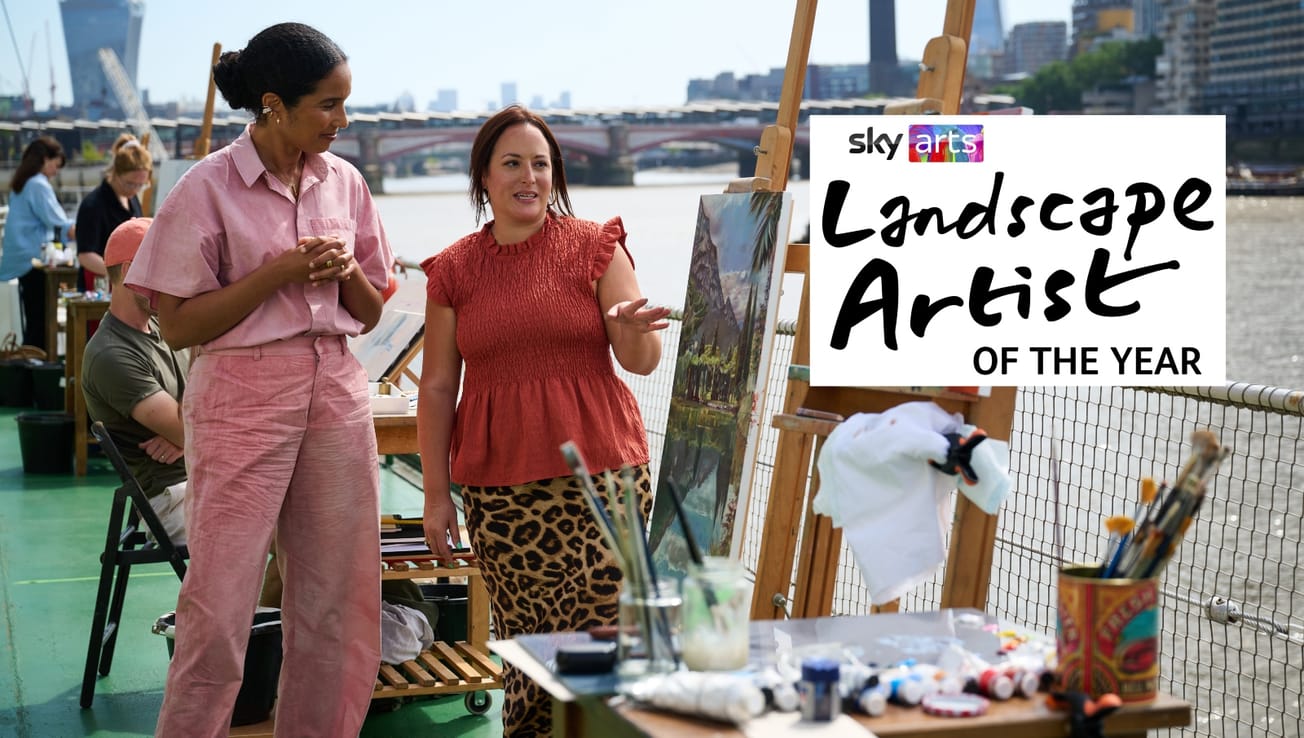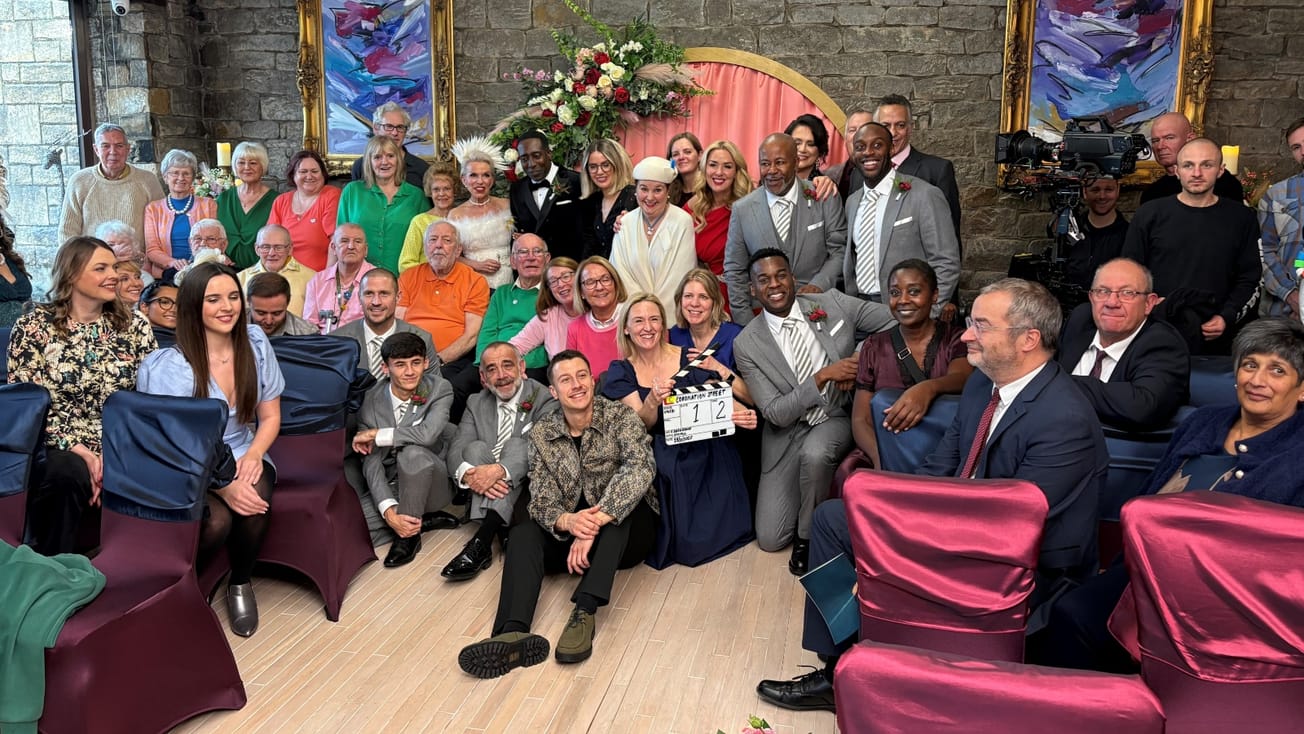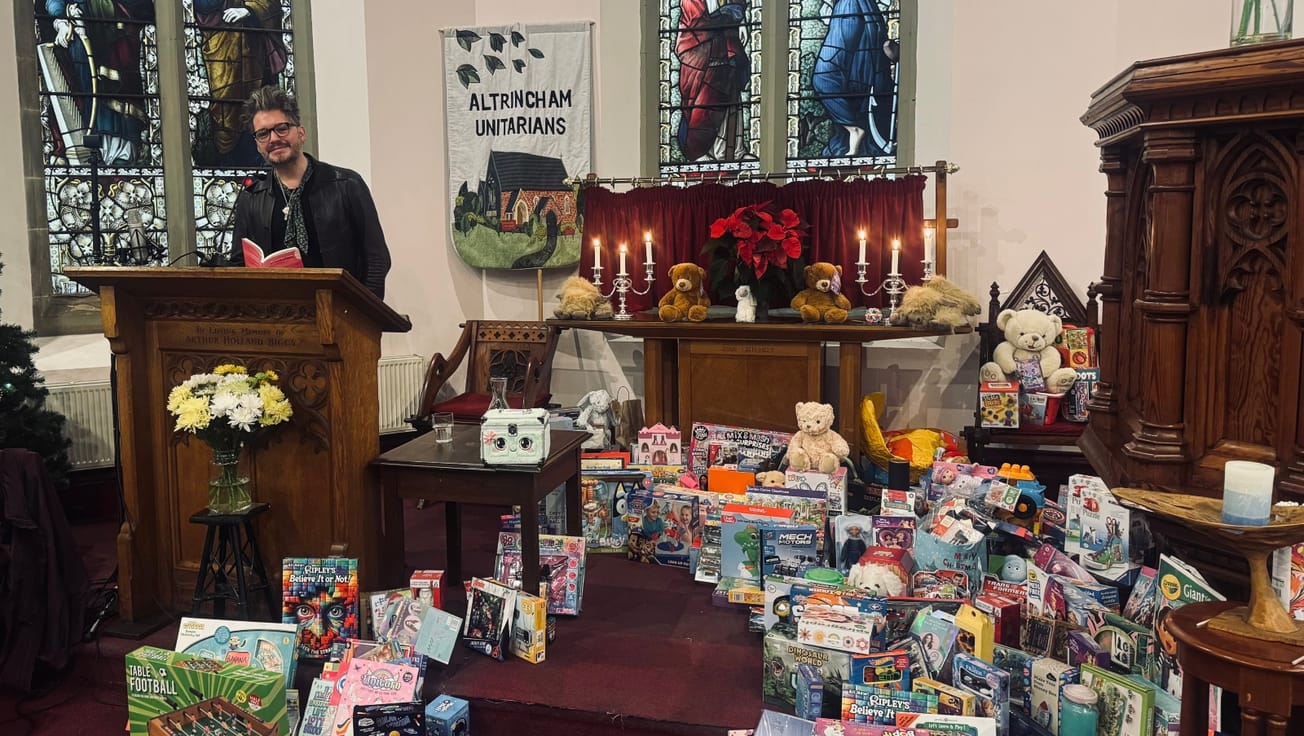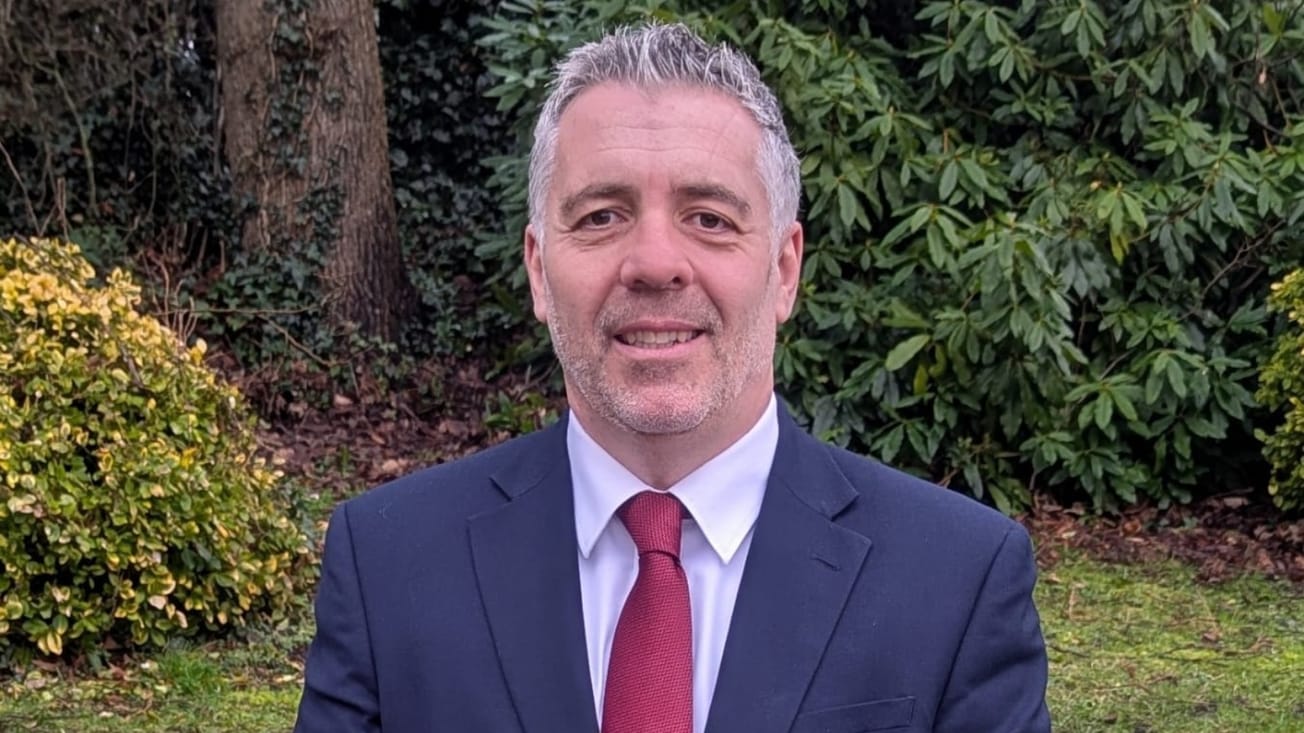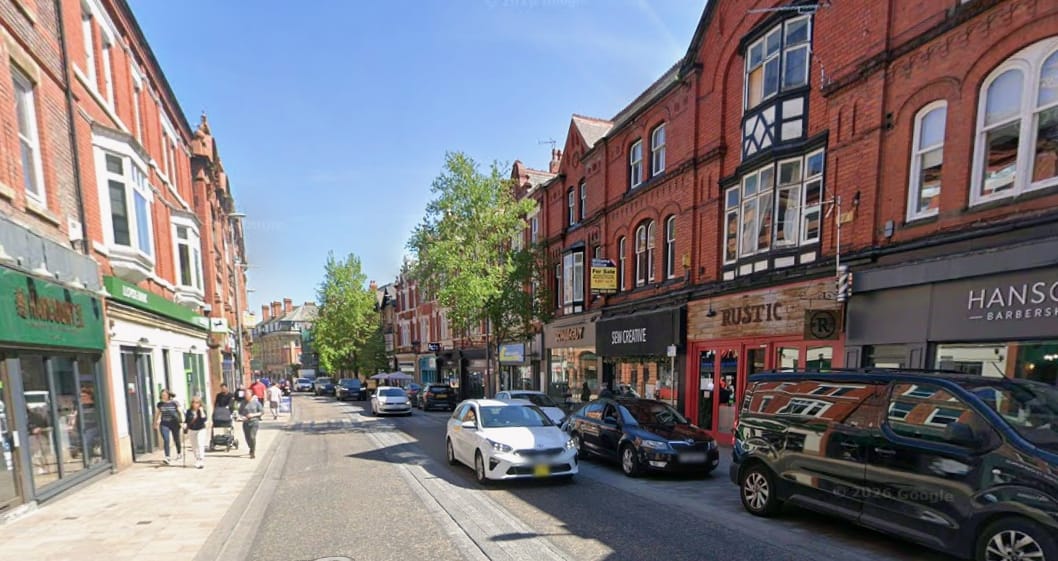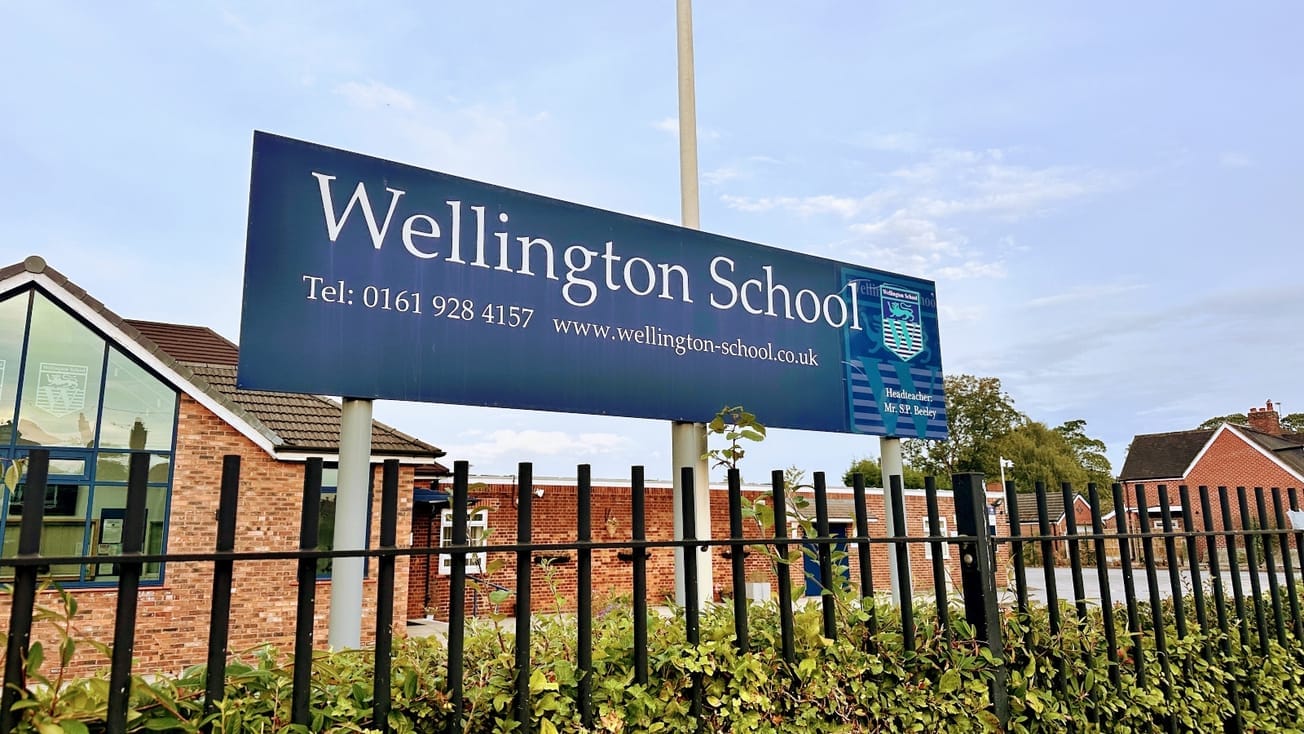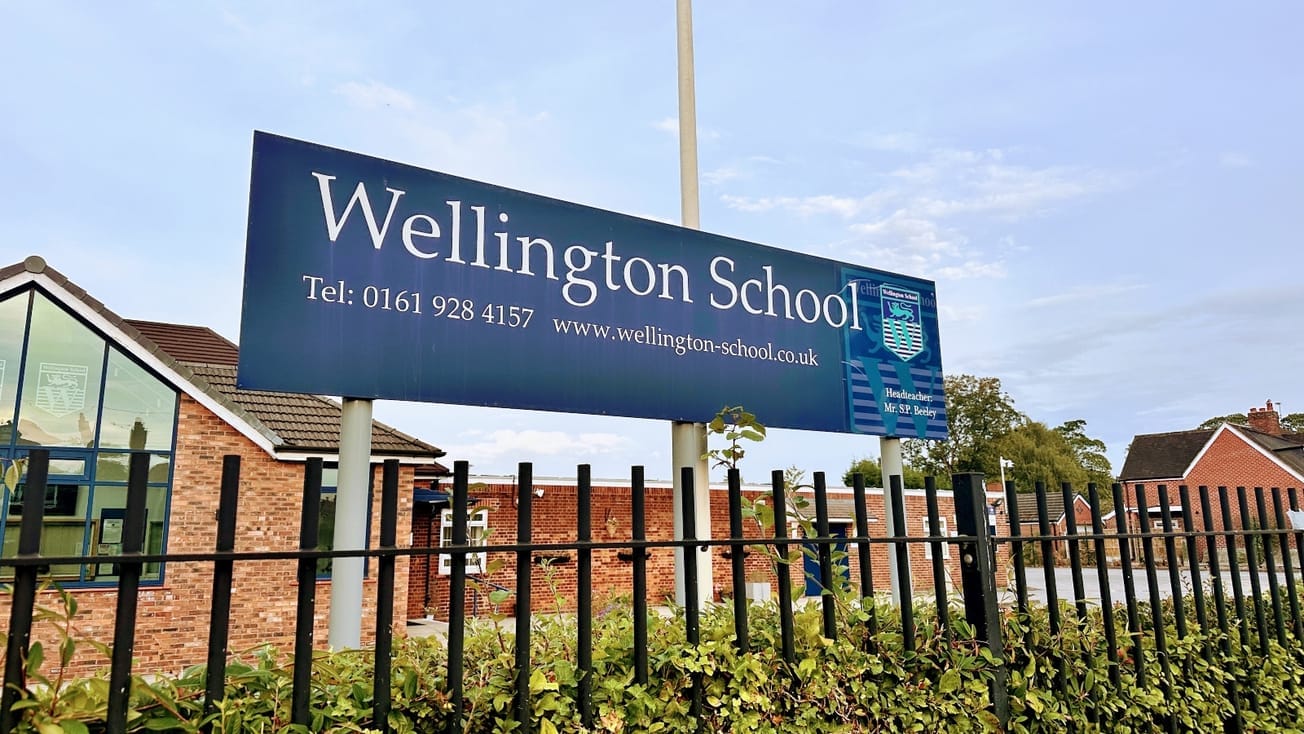Thirty-six years ago, an 18-year-old Johnny Marr knocked on the door of 384 Kings Road in Stretford and introduced himself to an awkward Mancunian by the name of Stephen Patrick Morrissey. The pair gelled instantly, and within weeks The Smiths were born.
By 1987, the time of their split, the band had produced such an exquisite canon of work that the NME later named them the most influential band of all time, ahead of even The Beatles. And while Morrissey was the lyrical maestro, the Smiths’ legacy hangs on the extraordinary melodies produced by Marr, at once both haunting and jubilant.
He’s gone on to play with everyone from Oasis and the Pet Shop Boys to Bryan Ferry and Nile Rodgers, but his indelible place in rock folklore is assured by the 74 songs laid down in five short years in the 1980s.
Now a solo artist who has just released his third proper album, Call The Comet, we sat down with Marr – an Altrincham resident – at the Laughing Elephant cafe in Hale Barns.
ALTRINCHAM TODAY: Altrincham has played a pretty important part in the life of The Smiths – you were living around here for quite a bit of your time in the band? You had an early photo shoot in Dunham Massey, for instance.
JOHNNY MARR: Yeah, but more importantly than that, the first songs we wrote were done on Portland Road just behind what was Culcheth Hall School. I moved to Bowdon in 1981 when I was 17 and lived with Shelley Rohde’s family on Portland Road. Shelley was a journalist and TV presenter on Granada Reports. My friend managed to blag a room on the top floor and said there’s a spare room going and the family wouldn’t mind. So I moved in – I don’t think the family knew I was in there for three weeks! But they were very welcoming, and that was an amazing time for me because I’d moved out of my parents’ house and this little attic room was the first place of my own.
That’s where Morrissey and I wrote our very first songs. The Hand That Rocks The Cradle was the very first one we wrote there, and then the same day, in our first writing session, we wrote Suffer Little Children. In that room on Portland Road I wrote nearly all of the first album – You’ve Got Everything Now, Accept Yourself, Jeane, What Difference Does It Make?, Handsome Devil, and a few more. From the moment I moved in there I started making these experiments with tapes, and that was a few months I’d met Morrissey. It was really the start of the next phase of my life.
Listen to a demo of The Hand That Rocks The Cradle, the first Smiths song, written by Marr in Bowdon…
AT: And even before that, you used to frequent a record shop in Altrincham?
JM: Yeah, I used to buy a lot of records from a shop called Discount Records in Altrincham. It was opposite where Next is now. Then it moved further down George Street. I bought a lot of records from there. And there was also a record shop in what used to be the arcade. Going back even before that, I was in Altrincham every Saturday morning because there was a guitar shop right next to the market. It did really well, that guitar shop, and I bought my first electric guitar there. I worked there without pay every week. I just hung around, getting the manager his sandwiches and his cigs and putting the kettle on, just so I could be around guitars.
This will have been 1975/76, when I was 11 or 12. The boss was a guy called Duncan who was an ex sound man for The Sweet, so he used to regale me with all these stories about being on the road with the glam rock bands. I was just a wide-eyed little kid who just wanted to be around people coming in the shop and watching people play and being around the guitars. He swore that he couldn’t pay me because I was underage, which was very convenient for him, but 12 is a very young age to be working in a shop. But he ended up giving me a good discount on a little Vox guitar that I bought when I was 12 or 13. So Altrincham was always a good place to hang out.
AT: Once The Smiths’ first album had been released, you wrote in your book about buying your first home, a Victorian three-storey. Was that in Altrincham?
JM: Yeah, the first house that my then girlfriend Angie and I bought was on the corner of Marlborough Road. That was the Smiths’ HQ. We lived there from 85.
AT: I knew your old neighbours!
JM: Did you really? Tell them I apologise! I apologise for all the noise coming in between the walls. In my defence, those noises went on to be quite popular songs, that’s the best I can say I about it.
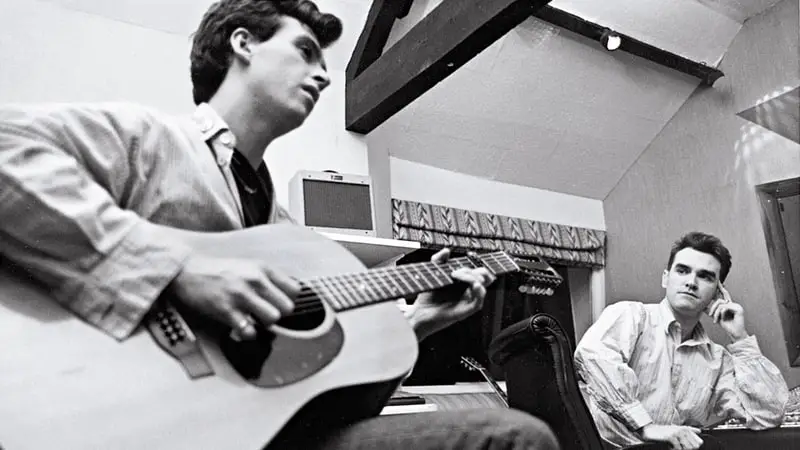
AT: So you were there from which album?
JM: From Meat is Murder onwards. In the house on Marlborough Road I wrote most of the Meat is Murder album and all of The Queen is Dead and quite a lot of the singles in between. There is a Light That Never Goes Out was written in Marlborough Road.
AT: You gave a great description in your book of how that song came about. It sounded like an amazing house to be in at that time.
JM: I always wanted my house to be a hive of activity and that’s very much what I got. It was where we ran things and it was the central hub of activity, a very creative place. Morrissey said to me at one time that every room in your house was like a sound check, and I took that as a compliment. I’d be writing songs throughout the night and would get up very late. I would listen to music and watch VHS cassettes, and reading. That was the only time I could get some quiet time to process my influences and get inspired really. As sociable as I am, writing songs for me is a pretty private process. I’d then get up late with all of this activity going on, with rehearsals and photo sessions being booked, sleeves being sorted and gigs being arranged, and the band would make it over to my place and we’d just record these songs. The Queen is Dead, I Know It’s Over, The Boy With The Thorn In His Side, all of those were all done on Marlborough Road.
The Smiths perform The Boy With The Thorn In His Side on Top of the Pops in 1985…
AT: You must look back and think ‘how did I do all that by the time I was 23’. Or do you?
JM: With maturity, I can look back and see that it was an unusual and, if I’m being honest, extraordinary… I don’t know whether achievement is the right word but it probably is. But because I know what went into it for the few years beforehand, from being a very restless and driven 14, 15, 16, 17-year-old, I understand why that amount of work happened. The success is out of your hands and a massive amount of luck comes into it, but yes I was very young for that flood of success and run of work to happen. But I started off trying to be a musician at 11 and was in a band with adults at 14, which is very unusual, but my story is more of a throwback to the 50s and 60s when people like the Everly Brothers or Brenda Lee who started out doing stuff as kids.
Growing up in Manchester, post-punk, it was more common to get a band together with your mates and slog it out for a bit and hope something happens, or to have seen the Pistols at 17 or 18 and go ‘I could do that’. Most people start properly in earnest a bit later on, but I was out of the house and a working and inspired musician with a real hunger at a very very young age. I was rehearsing with adults in a basement in Whalley Range at 14. As a parent I’d completely freak out if my kids were doing that, although one of them (son Nile) is a musician.
AT: You also mentioned another place you lived, Forest Edge on Charcoal Road in Dunham, which sounds like an incredible meeting place at the time for people like New Order, Pet Shop Boys and Oasis.
JM: Musically, Forest Edge was a bit of an upgrade on my house on Marlborough Road. When my kids were born I wanted more privacy and for things to be done in a more appropriate setting, although my homes have never conventional as most people might imagine! My kids grew up pretty much in a very very musical environment with lots of bands coming and going, and the result of that was that they saw the work and the discipline that goes into what me and my colleagues go. It’s easy to conjure up these cliched ideas about rock and roll, hedonism and debauchery and all that, but work’s always come first for me. Everything’s at the service of my work, and my kids have grown up seeing that.
So whether it was them getting up to go to school in the morning and The Cribs having breakfast for three weeks while we were doing demos, or Ed O’Brien from Radiohead coming to stay for a while and me and him being up playing guitar, or Oasis coming over to do bits on their first album or The Charlatans or New Order or whoever it might be, the one thing my kids have seen is work. I did that all the way through the 90s and early 2000s. We lived in a recording studio rather than having a recording studio in our house – there’s a difference.
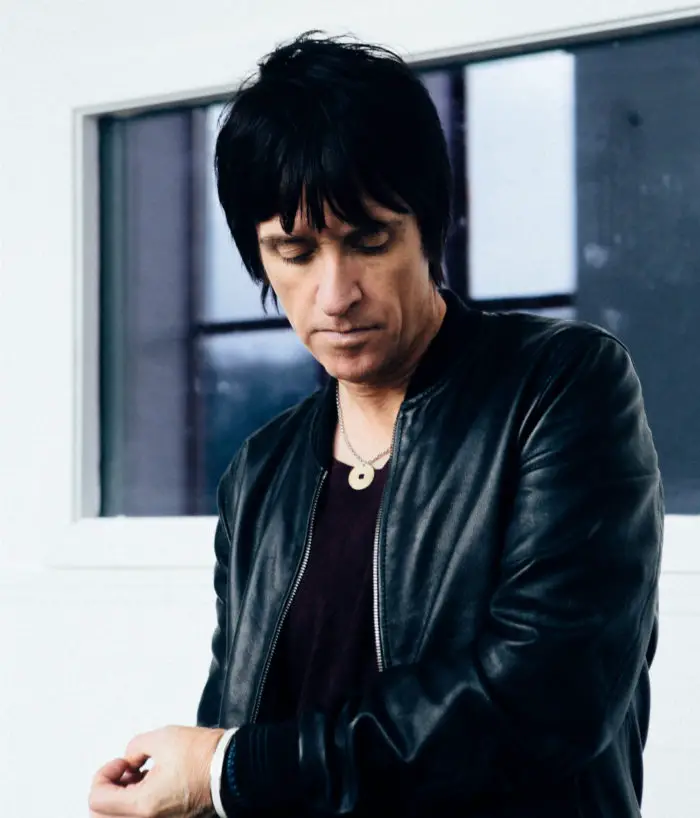
AT: Just going back to your influences… Nile Rodgers, of Chic, was one of your early inspirations and you actually named your son after him. Is he someone you’d actually be starstruck by?
JM: I’ve been very fortunate in that I’ve played and worked with a lot of my heroes, whether that’s getting very close to Bert Jansch, the folk guitar player, and even getting friendly with Rory Gallagher before he died. Nils Lofgren too. All those guitar players I’ve got to know and play with, and yeah it’s an amazing feeling and I’m never blasé about it. It’s a funny thing about guitar players in particular – they’re very inclusive. Musicians in general are very sharing kind of profession, I’m proud to say, in a way I’ve not really seen in other artistic professions. I find that comedians tend to be quite guarded and almost competitive in my experience, but musicians share their enthusiasms.
When I came on the scene, some of my heroes actually sought me out and contacted me – Iggy Pop did that, Keith Richards was another one. I’ve done the same – Bernard Butler I called up when I was aware of him, and Nick Zinner from the Yeah Yeah Yeahs. It’s just a thing with guitar players – we’re like a sort of gentleman’s club. It’s quite positive.
But I’ve played with Chic quite a few times now and it was a big moment for me presenting Nile with the guitar that I’ve designed. I actually presented it at the old Four Seasons, the Marriott by the roundabout in Hale Barns. He’d found himself with a day off in the pouring rain and we were supposed to me meeting a couple of days later at Parklife. He called me and I said ‘what, you’re in WA15’. He said he was out near Manchester Airport. He told me he was by the Marriott and I said ‘dude, that’s three minutes away from my hood!’ So I went over there and presented him with the first of my signature Jags (Fender Jaguars) because he’s been an inspiration. The very first one off the production line my son owns, so the first official one for sale I gave to Nile Rodgers just down the road here. It’s like Memphis or something, round here!
Watch Marr play with Chic at the Manchester Ritz in 2013…
AT: Somebody else you’ve spent quite a bit of time with, on and off stage, is Neil Finn.
JM: Neil is an inspirational character, if only because he’s one of those rare people who when they say, do you want to hear my new song, they don’t go rummaging around for their phone, they actually pick up the guitar and sing it right at you in the kitchen, which is a very old school but really brilliant way of behaving. It goes without saying that you have to be really good to do that and it’s a real test of your songs. Neil’s great like that. We had that in common because that was something that was a part of my formative years. I like that.
Another thing Neil and I have got in common is that our families’ stories are very alike – he’s been with his wife from being very young and his kids have grown up as players and creative people and writers, like mine have, so we understand each other very well. Our families are very close.
Marr performs the classic Smiths song There is a Light That Never Goes Out in Auckland with Neil Finn on vocals
AT: You’re a keen runner now, and you’re vegan and teetotal. Was there a particular trigger for all this?
JM: I’d say there was around about 2000. The lifestyle I was living wasn’t particularly debauched or too rock and roll by this time. Often when people in the press talk to me about my lifestyle, there’s this underlying idea that behind all this is my drinks and drugs hell story where me and Ozzy Osbourne spent the 80s dangling our children off the roofs of tall buildings. The decision I made to be teetotal and vegan was almost to help me function better really. I’d just got to the end of the rock and roll thing – you get to an age when let’s face it, it’s not a very good look, hovering around the Champagne and the beer in the dressing room. No-one wants to be that guy. I want to experience new things so running and an almost obsessive interest in health seemed like a new frontier to me, and it kicked off, perhaps unsurprisingly, a new level of creativity for me. I guess it’s something that people are afraid of losing, but in my case it actually made me more productive.
AT: Is it one of the reasons why you’re as grounded as you seem to be? Most people at your level would have entourages and live in LA mansions, but you seem happy back here, close to where you grew up?
JM: I’ve had my moments! I’ve been in the public eye since I was 18, and as lucky as I feel, that isn’t always a healthy thing, and you have to kind of deal with that. I’m someone who always feels very grateful that I got to live my dreams, but nothing’s as simple as that. But taking care of yourself is definitely important if you want to sustain a productive and long career without going too loopy. But I’ve lived for periods in Los Angeles and I’m in London for almost half of my life, and have felt like I have been since being 18, but I value evenness and I work towards equilibrium. It’s too easy to fall into being a wanker. As I say, I do have my moments, but I always have to give credit for the people around me. I’ve always had great people around me who are very together and smart and compassionate.
I’ve always been asked about living in the North West, and the assumption is that I live here because it’s my roots, when in fact I don’t live here because it’s my roots. I live here because it’s it’s a great place to live. As a musician, Manchester is very rich and inspiring. For many many years there was loads of resources here, places where I could get equipment, places to play, and more importantly a culture of rock music and creativity which will never go away. It’s been built on and built on. So in other words the ground work laid by The Hollies in the 60s that spilt into 10CC that made way for The Buzzcocks and The Fall, that inspired Joy Division, New Order, The Smiths, The Stone Roses, who had an influence on Oasis, and of course the whole Madchester scene, that story has inspired younger musicians and brought people to the city to work or go to uni who then want to stay and add something to the culture themselves. It’s something that not only makes me proud – it’s why I’m here.
As I get older, it’s very satisfying for me to know that I’ve done all I’ve done and continue to do what I do, five miles from where I grew up, not needing to live full time in LA or New York. I’m very fortunate in that I get to work in New York and a lot of the film scores were done in LA, but I’m here right now because for me it’s the best place to be.
Marr performs with one of his heroes, the late Bert Jansch, in 2003…
AT: What do you remember about your session with Paul McCartney?
JM: Playing with Paul McCartney was, as anyone might imagine, an amazing thing. But it started off in the most incredible way because I was in my kitchen in Marlborough Road as the news broke on the radio that The Smiths had split up officially, which as you can imagine was a lot for me to process and I felt ‘uh-oh’, the shit’s really going to hit the fan now. And maybe 15 minutes later, the phone goes and it’s Paul McCartney’s manager asking if I’d be interested in going down to play with him. So as getaways go, it was a pretty good one, because for 15 minutes I was standing there thinking I was probably going to have to go back to working in the Co-op in the Civic Centre… and by the way I was OK with that because I’d made the decision with that in mind. I’m not an idiot, when I decided to get out of the band, I looked at all the options and a big option was that my working life was going to go down or backwards, certainly I didn’t expect to stay where I was. And that’s the honest truth.
But I was prepared to jump into the void, which I know sounds very dramatic, but it was a dramatic thing I was facing. So I had that sense of worry and complete panic and then 15 minutes later I get a phone call from Paul McCartney. I can honestly say I was not expecting that to happen. I thought I was going to have to sell my house. So right from the off that was an amazing story. A few days later I found my self sat in a rehearsal room and Paul and Linda walk in and we started rehearsing in the way I’d been rehearsing with every other band I’d been in from being a kid.
Standing around, smoking cigs, drinking coffee, talking, doing a few songs, but it just so happens that I was doing I Saw Her Standing There and Things We Said Today and a lot of the old rock and roll songs that the Beatles did, with this incredible musician playing an amazing bass guitar singing these incredible songs. Linda was so great to me. I was in a very precarious position at the time and I wasn’t standing there feeling cocky by any means, I was feeling very very much like a young kid from South Manchester. And then things just started to roll for me. But I was more nervous about meeting Dennis Tueart than I was Paul McCartney!
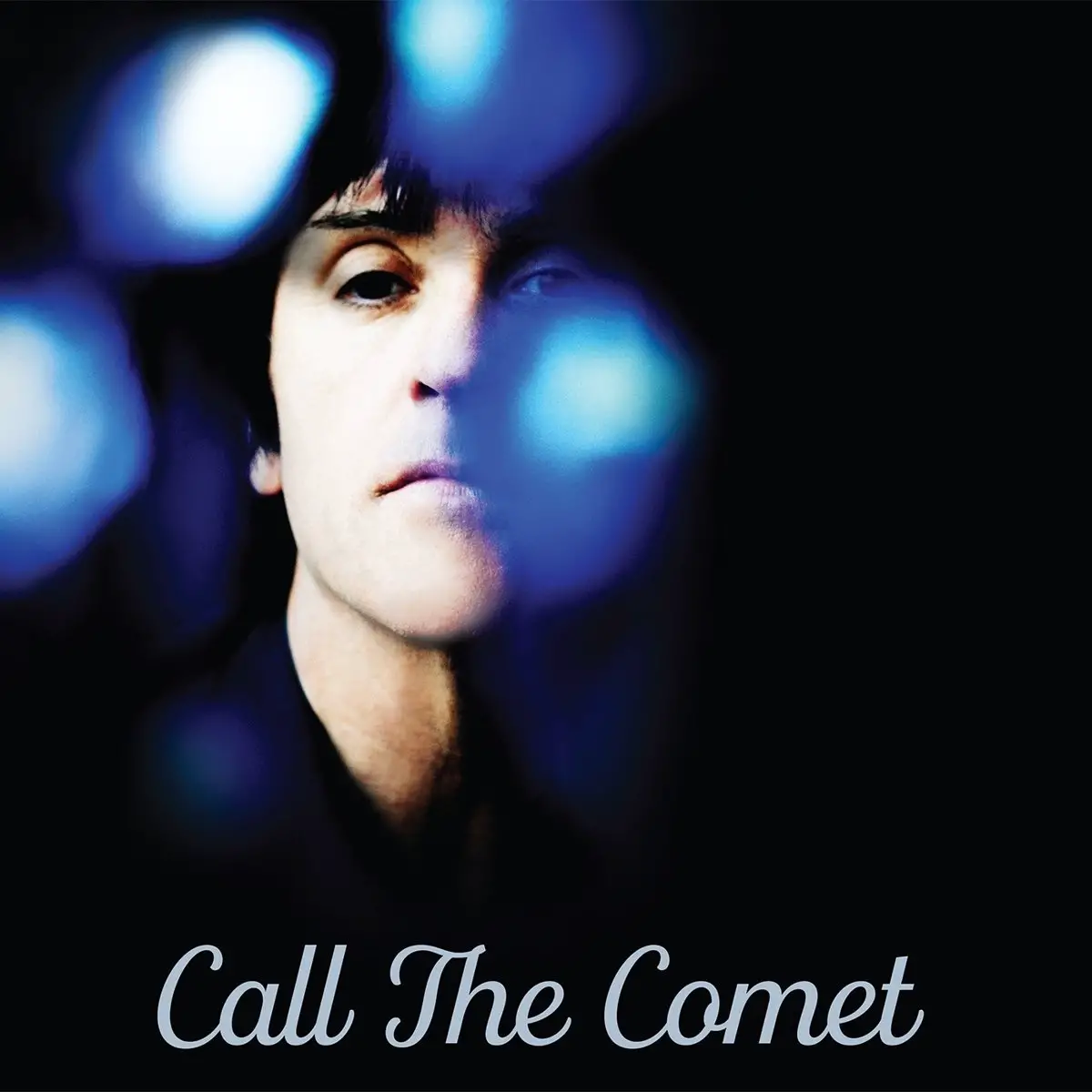
AT: Call The Comet is your fourth solo album now, including your live album – do you get the sense that people might actually be discovering you for the first time through your solo stuff?
JM: There is some of that with kids hearing me through their parents playing (previous solo albums) The Messenger and Playland. The parents go back with me to when I first started out in The Smiths and through Electronic and The The, and there are people who’ve stuck with me over 30-odd years who have gone through all the changes with me. Those people are liking the solo stuff and their youngsters get turned on to that. Easy Money was a big song for me – that introduced me to a whole new audience.
But I’d say the biggest thing that introduced me to a new audience was probably Modest Mouse, particularly in America, and there was a lot of kids who came to see me in The Cribs as well. A lot of them would have been aware of who I was because of things like the NME and indie culture anyway. It wasn’t like this dude just turned up at the side of the stage and plugged into someone else’s amp. But all of that over the last 10 years has widened my audience and brought me to the attention of new people.
AT: Where does Call The Comet sit musically, compared to Playland and The Messenger?
JM: It’s a development, which is good news. It’s more dramatic and moody. I went into it pretty much as a blank page, apart from one song which we’ve been playing live called Spiral Cities. Other than that I started from scratch. Because I’d come off the back of writing my autobiography, I didn’t really give myself time off to think about what I was going to do, I just knew I had to make a record because it’s what I do. I wanted to get the band back together and get back on the stage. Particularly after promoting the book for a year, which I found a little bit intrusive if truth be told.
Watch the video to Marr’s new single, Hi Hello
AT: Really?
JM: Yeah, I’m not crazy about promoting, particularly when it’s talking about your past all the time. I understand it’s part of it, particularly when you put an autobiography out, but the book was very successful in the mainstream so that called for being on mainstream television a lot, both here and in the United States, and I found that a little intrusive. But I’m glad people liked it.
What that meant was that, going into the record, I started writing songs without any preconception of what I thought I should do, and the record’s really benefited from that, it’s more emotional than my approach on The Messenger and Playland when I was deliberately trying to avoid emotional gestures.
AT: It seems a bit more political?
JM: No, it’s not. In spite of what you may have read. This is the problem with the modern world and social media – in explaining to a journalist that I tried to avoid contamination by politics on this record, that in itself becomes the story. There are two reasons why it’s not directly political – one, is that it would almost be too obvious, but more importantly, it’s because I’ve used this record as a refuge from the political situation, maybe because it’s my only way of dealing with it. And in turn, I hope that I’ve made a record that when people hear it, the listening of it can be a bit of a refuge from thinking about the political situation. I’m not implying that as soon as you put Call The Comet on, the outside world disappears, it’s actually a little bit more basic than that. I found that the political climate was so complex and so overt and ridiculous, that it made me appreciate even more that rock music is a great alternative attitude to those concerns, and my life as a musician can be about encouraging that.
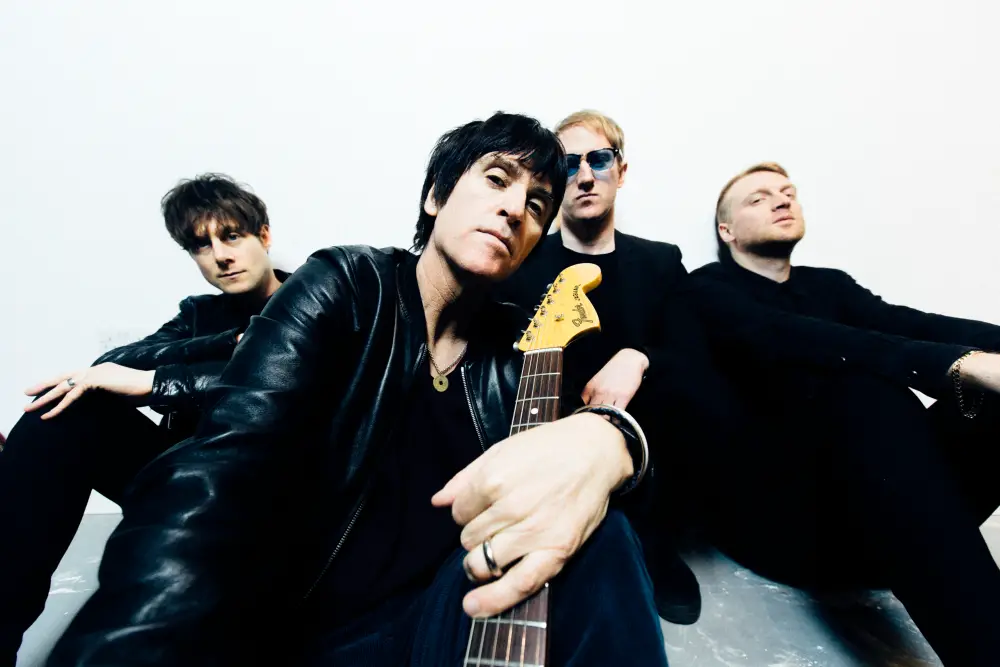
AT: Is there a sense that you’ve almost been too depressed by the political situation to even engage with it?
JM: Yeah. Put simply, I don’t think the characters involved – the politicians – are worthy of being in my songs, such is my contempt for them. It’s not that I want to put my head in the sand and be an ostrich. I’ve often been asked whether artists have a duty to make political and social statements, and I actually don’t think it’s the responsibility of an artist and certainly not a duty to make any kind of political statements or have any answers or even an opinion, if you don’t want to do that. But because of the generation I came out of, people like me, Billy Bragg and almost anyone from the early 80s indie scene like Orange Juice, New Order and possibly The Cure, there’s an understanding that we are of a certain sort of social attitude. Back then, musicians and the music press were all literally on the same page in uniting against the right wing.
So sometimes that’s been put on me and I accept that and am OK with that, but there is a time you have to protect what you do, and if I’m going to write a rock song about beings from another dimension or a personal song about somebody who’s involved in my life, then that is completely sacred and I don’t feel like I have to have any kind of political agenda. The first two solo records, while not being directly political, were exploring society more than this record. This one is more internal and moody. If I have to describe it a big part of it that isn’t personal is really creating stories about an imagined society. I like singing about environments and societies, so rather than be brought down by characters in this one, I’ve imagined a more Utopian one.
AT: What sort of inspirations and experiences have you drawn on, lyrically as well as musically?
JM: I read a lot. Spiral Cities, one of the new songs, was inspired by a book called The Crystal Chain Letters which was written in the early part of the last century and is a collection of correspondence between eminent architects of the time, van der Rohe being one of them and I think Corbusier might have been involved too. This collective of architects started designing an imaginary, glacial city which caught my imagination and I thought was great material for a song.
I also rediscovered HG Wells, if only because the science fiction of the last century – so therefore of course way way pre-internet – was so imaginative and out there and weird, but not necessarily that off the mark. Which is kind of amazing because when when those books were published, EM Forster as well, they described this dystopian, dysfunctional way of living which is very scary and completely seems out of the realms of reality, but it’s actually come to pass in quite a few ways. And obviously, Brave New World by Aldous Huxley is something that I’ve known since I was a kid, and I wrote a song called The Tracers, which is the first single, and Call The Comet was part of that, and it was only afterwards through doing a bit of research that I discovered that HG Wells had written a book called In the Days of the Comet, which is really along similar lines. And that made me go back to the song and tweak it a little bit so that it was a little bit more in line with that.
Other than that, I’m a big fan of essayists, particularly Joan Didion and what’s called the New Journalism of the 60s. She’s amazing. Also, Williams Burroughs, more in terms of his style than content. The internet has changed so much now that stuff that was once futuristic has been completely superceded and is out of date. But those people who I grew up with when I was leaving school – Philip K Dick, Ballard, Aldous Huxley, Forster and HG Wells – is really inspiring to me.
Marr performs with Hans Zimmer at the premiere of the movie Inception
AT: How much has your work with Hans Zimmer – on the likes of the Inception and Amazing Spider-Man 2 soundtracks – inspired you? Has it helped you to develop a more cinematic sound?
JM: I think it has, yeah. Hans is an amazing person and an amazing mind. At the risk of completely boxing off one of my best friends, he has the intelligence and culture of a European intellectual but he’s got the soul of a rock musician. So in other words, he can talk about European history and art, but he’ll be doing it at half three in the morning in a studio with a bottle of red wine and a cig on, whilst moving on to a story about how his Mellotron caught fire in Barrow-in-Furness in 1979. He’s a very very interesting guy, very philanthropic.
But yeah the process of working with Hans has inevitably seeped into what I do with my group. There’s a song on the record called Walk Into The Sea has been identified as being very cinematic. I just went with it – it’s a good example of me just following where I am in my life rather than conceptualising a record before going into it. This song just came out, and just in case people get the wrong idea about the title, it’s actually about rebirth and regeneration. It’s quite orchestral.
AT: The other person you’ve been working with recently is actress Maxine Peake, who you worked with on a track and video called The Priest. Are you going to be doing more with her?
JM: Maxine and I are trying to carve out some time in between our work. She’s either making a film or rehearsing a play, or I’m about to go out on tour, so it’s kind of difficult getting two workaholics to finish off what they’re doing! But I love working with her and we’ve got about six or seven pieces that we’ve done that’s musically very different. The Priest is probably the most accessible track we’ve done – the rest of the stuff we’ve done is a little more out there.
But the Priest was interesting for me not just because of what Maxine was doing on it but because on that track I’d got back to doing stuff with guitars the way I was working with The The, which is texturally not the way I do it with my group. What I do with the group is a little bit more obvious – not traditional, but more obviously guitar, whereas with Maxine we almost act more like an industrial group, putting stuff through pedals and treating it so you’re not really sure whether it’s a keyboard or a guitar.
Call The Comet was released on New Voodoo Records on June 15th

